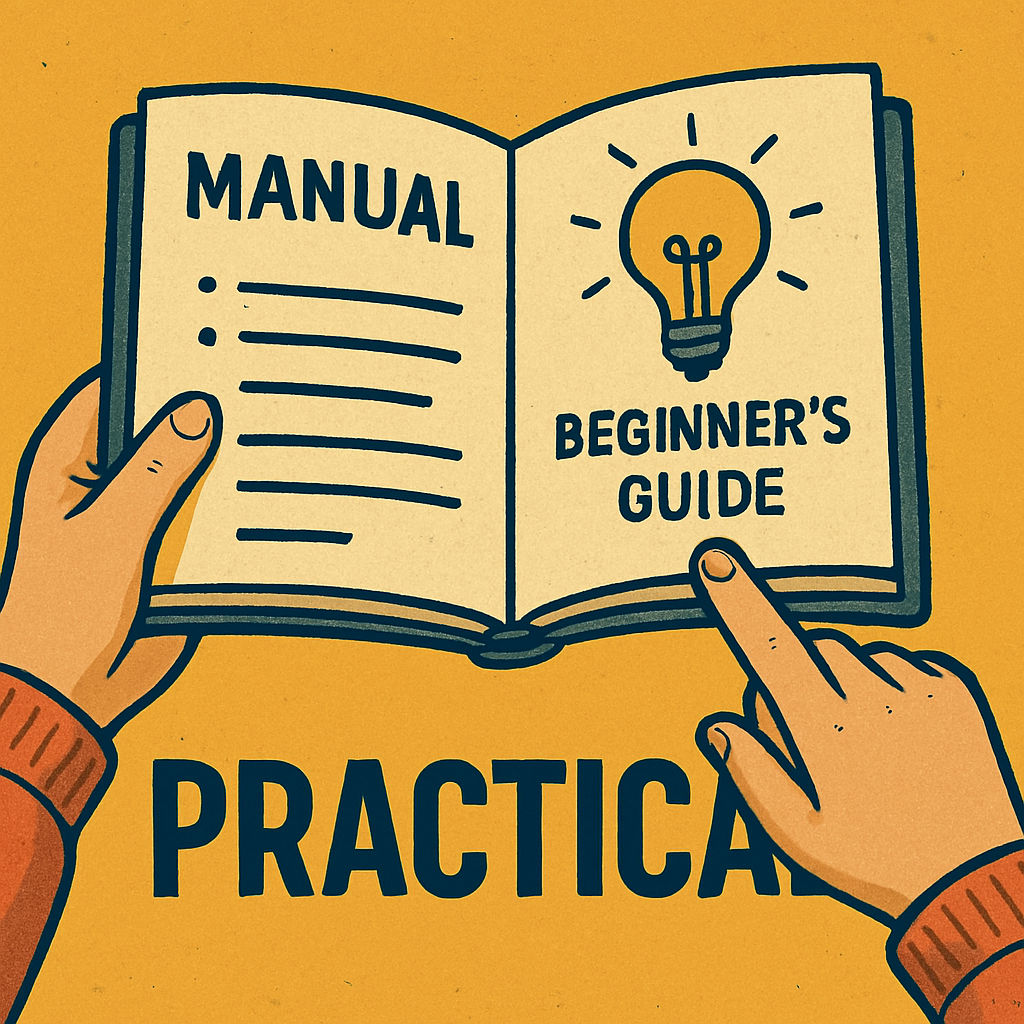Practical
Definition
The term "practical" describes something that is useful, effective, and focused on real-world applications rather than theoretical considerations.
Parts of Speech
- Adjective
- Noun
Pronunciation
American English
- IPA Pronunciation: /ˈpræk.tɪ.kəl/
- Respelling: PRAK-ti-kuhl
British English
- IPA Pronunciation: /ˈpræk.tɪ.kəl/
- Respelling: PRAK-ti-kuhl
Etymology
The word "practical" originates from the Greek "praktikos," meaning "fit for action" or "active," derived from "prattein," which means "to do." It entered Middle English through Late Latin "practicus" and Old French in the late 14th century.
Derivatives
- Practically (adverb)
- Practicable (adjective)
- Practice (noun, verb)
- Practitioner (noun)
- Practiced (adjective)
Synonyms
- Useful
- Functional
- Realistic
Antonyms
- Impractical
- Theoretical
- Unrealistic
Usage
The term "practical" is commonly used in contexts requiring real-world solutions or effectiveness. For example: "Her practical approach solved the problem quickly," or "He studied the practical aspects of engineering."
Related Terms
- Functionality: The quality of being suited for use.
- Application: The act of putting something into operation.
- Effectiveness: The degree to which something achieves its intended result.
Detailed Definitions
Adjective
- Concerned with real-world applications: Refers to solutions or actions designed to be effective in practice.
- Example: "The manual provides practical advice for beginners."
- Useful and functional: Describes something designed for use or efficiency.
- Example: "This toolbox is filled with practical tools for repairs."
- Realistic or sensible: Indicates a grounded or reasonable approach.
- Example: "Her practical decision saved time and resources."
Noun
- A hands-on examination or exercise: Refers to a real-world application or test of skills.
- Example: "The course includes a practical to test your knowledge."
practical



🇨🇳 Mandarin
- 实用的 (shí yòng de) (Practical as in functional)
- IPA Pronunciation: /ʂʐ̩˨˩˦ joŋ˨˩˦ tə/
- Respelling: shi yong de
- 实践的 (shí jiàn de) (Practical as in experiential)
- IPA Pronunciation: /ʂʐ̩˨˩˦ tɕjɛn˨˩˦ tə/
- Respelling: shi jian de
🇮🇳 Hindi
- व्यावहारिक (vyaavahaarik) (Practical as in functional)
- IPA Pronunciation: /vjaːvhaːrɪk/
- Respelling: vyaav-haa-rik
- अनुभवात्मक (anubhavaatmak) (Practical as in experiential)
- IPA Pronunciation: /ənʊbʱəʋɑːtmək/
- Respelling: anu-bhava-atmak
🇪🇸 Spanish
- Práctico (Practical as in functional)
- IPA Pronunciation: /ˈpɾak.ti.ko/
- Respelling: prak-ti-ko
- Experiencial (Practical as in experiential)
- IPA Pronunciation: /ekspeɾi.enˈθjal/
- Respelling: eks-pe-ri-en-thjal
🇫🇷 French
- Pratique (Practical as in functional)
- IPA Pronunciation: /pʁa.tik/
- Respelling: pra-tique
- Expérientiel (Practical as in experiential)
- IPA Pronunciation: /ɛkspeʁjɑ̃sjɛl/
- Respelling: eks-pe-rian-siel
🇸🇦 Modern Standard Arabic
- عملي (Amali) (Practical as in functional)
- IPA Pronunciation: /ʕamaliː/
- Respelling: a-ma-lee
- تجريبي (tajreebi) (Practical as in experiential)
- IPA Pronunciation: /tad͡ʒriːbiː/
- Respelling: taj-ree-bee
🇧🇩 Bengali
- ব্যবহারিক (byabohaarik) (Practical as in functional)
- IPA Pronunciation: /bʲabɔharik/
- Respelling: b-yabohaarik
- অভিজ্ঞামূলক (abhidnyaamulak) (Practical as in experiential)
- IPA Pronunciation: /ɔbʱidʒnaːmulɔk/
- Respelling: o-bhi-dzna-mulok
🇷🇺 Russian
- Практичный (Praktichnyy) (Practical as in functional)
- IPA Pronunciation: /prɐkˈtʲit͡ɕnɨj/
- Respelling: prak-ti-ch-nyi
- Опытный (Opytnyy) (Practical as in experiential)
- IPA Pronunciation: /ɐˈpɨtnɨj/
- Respelling: o-pyt-niy
🇵🇹 Portuguese
- Prático (Practical as in functional)
- IPA Pronunciation: /ˈpɾa.ti.ku/
- Respelling: pra-ti-ku
- Experiencial (Practical as in experiential)
- IPA Pronunciation: /eʃpeɾiẽsiɐl/
- Respelling: esh-pe-ri-en-sial
🇮🇩 Indonesian
- Praktis (Practical as in functional)
- IPA Pronunciation: /prak.tis/
- Respelling: prak-tis
- Berpengalaman (Practical as in experiential)
- IPA Pronunciation: /bərpəŋalaman/
- Respelling: ber-pen-ga-la-man
🇩🇪 German
- Praktisch (Practical as in functional)
- IPA Pronunciation: /ˈpʁak.tɪʃ/
- Respelling: prak-tish
- Erfahrungsbasiert (Practical as in experiential)
- IPA Pronunciation: /ɛʁˈfaː.ʁʊŋs.baː.ziːɐ̯t/
- Respelling: erfah-rungs-ba-ziert
🇯🇵 Japanese
- 実用的な (Jitsuyōtekina) (Practical as in functional)
- IPA Pronunciation: /dʑit͡sɨᵝjoːte̞kina̠/
- Respelling: ji-tsu-yo-te-ki-na
- 経験的な (Keikentekina) (Practical as in experiential)
- IPA Pronunciation: /ke̞ːke̞nte̞kina̠/
- Respelling: kei-ken-te-ki-na
🇻🇳 Vietnamese
- Thiết thực (Practical as in functional)
- IPA Pronunciation: /tʰiət̚˧ˀ˦ twʊk̚˧˧/
- Respelling: thiet thuc
- Thực nghiệm (Practical as in experiential)
- IPA Pronunciation: /tʰwʊk̚˧˧ ɲiəm˧˥/
- Respelling: thuc nghiem
🇰🇷 Korean
- 실용적인 (silyongjeogin) (Practical as in functional)
- IPA Pronunciation: /ɕiljoŋt͈͈͡ʃʌɡin/
- Respelling: sil-yong-jeo-gin
- 경험적인 (gyeongheomjeogin) (Practical as in experiential)
- IPA Pronunciation: /k͈jʌŋhʌmd͡ʑʌɡin/
- Respelling: gyeong-heom-jeo-gin
🇹🇷 Turkish
- Pratik (Practical as in functional)
- IPA Pronunciation: /pɾatik/
- Respelling: pra-tik
- Deneyimsel (Practical as in experiential)
- IPA Pronunciation: /de.ne.jim.sel/
- Respelling: de-ney-im-sel
Practical
Definition
Practical generally describes something that is of or concerned with the actual doing or use of something rather than with theory and ideas.
Parts of Speech
Practical is primarily used as an adjective in English.
Pronunciation
- IPA (International Phonetic Alphabet): /ˈpræktɪkəl/
- American English respelling: PRAK-ti-kuhl
- British English respelling: PRAK-ti-kuhl
Etymology
The term "practical" comes from the late Middle English, originally referring to a thing or person engaged in practical affairs. It's derived from Old French "practique" or Medieval Latin "practicalis", which are in turn from Greek "praktikos", meaning 'concerned with action', based on "praktos", meaning 'done' or 'effected', from the verb "prassein/prattein" meaning 'do'.
Derivatives
- Practically
- Impractical
- Practicality
- Overpractical
- Hyperpractical
Synonyms
- Pragmatic
- Sensible
- Useful
Antonyms
- Impractical
- Inefficient
- Theoretical
Usage
"Practical" is widely used in various contexts to describe a more useful, sensible, or effective approach or outcome. It can refer to things, methods, and persons.
Related Terms
- Practical Application: The use of scientific knowledge to solve practical problems.
- Practical Reason: The faculty of the mind which selects, at the moment of decision, the strongest desire from among the various desires present.
Detailed Definition
As an adjective, "practical" signifies:
- Of or concerned with the actual doing or use of something rather than with theory and ideas.
- Example: There are many practical applications of this research.
- (of an idea, plan, or method) Likely to succeed or be effective in real circumstances; feasible.
- Example: Neither of these strategies are very practical.
- Designed to be useful or practical rather than attractive.
- Example: He always wore very practical clothing.
- Involving or concerned with experience or actual use; not theoretical.
- Example: This is a practical criticism of the project so far.
🇵🇰 Urdu
- عملی (Amali) (Practical as in functional)
- IPA Pronunciation: /ʕamliː/
- Respelling: a-ma-lee
- تجرباتی (tajurbaati) (Practical as in experiential)
- IPA Pronunciation: /təd͡ʒrɪbɑːtiː/
- Respelling: taj-riba-ti





